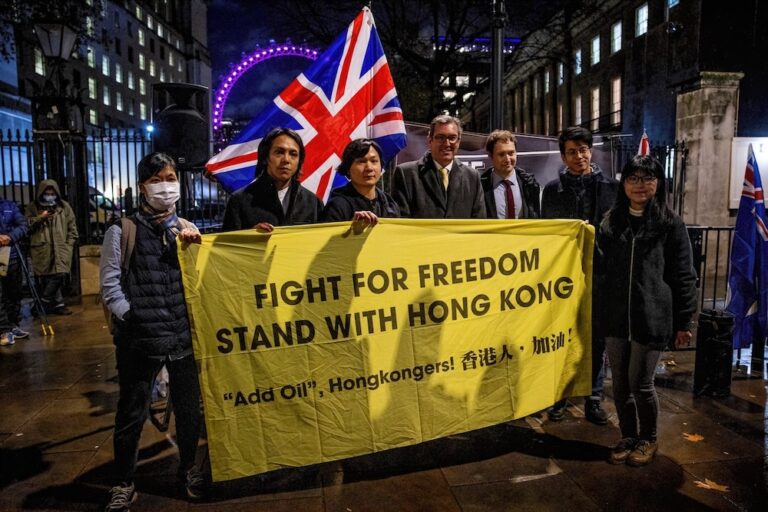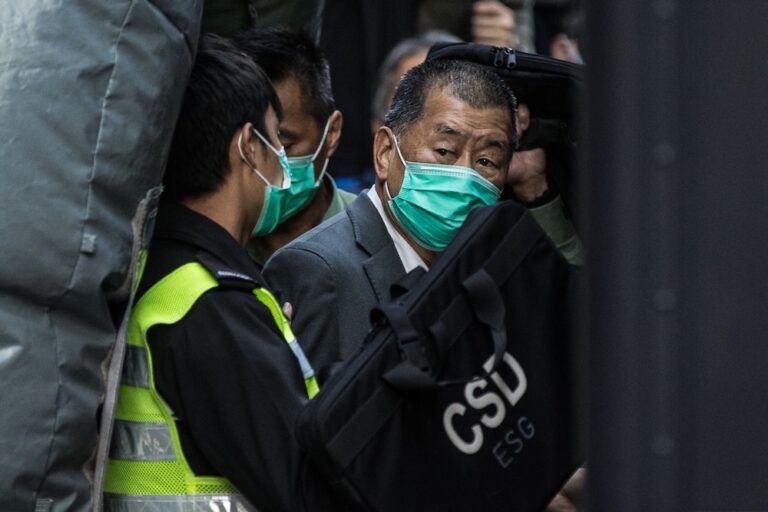(Freedom House/IFEX) – The following is a Freedom House press release: PROPOSED HONG KONG LAW SEVERELY THREATENS FREE EXPRESSION NEW YORK, December 19, 2002 — The government of Hong Kong must abide by international norms as it proposes new legislation that, as currently outlined, profoundly threatens freedom of expression and other basic rights, Freedom House […]
(Freedom House/IFEX) – The following is a Freedom House press release:
PROPOSED HONG KONG LAW SEVERELY THREATENS FREE EXPRESSION
NEW YORK, December 19, 2002 — The government of Hong Kong must abide by international norms as it proposes new legislation that, as currently outlined, profoundly threatens freedom of expression and other basic rights, Freedom House said today in a new report.
The government of the Hong Kong Special Administrative Region is currently preparing national security legislation required by Article 23 of the territory’s Basic Law, which assigns penalties for acts of treason, sedition, and subversion, among other offenses.
A recently released Consultation Document outlines the government’s approach to the new legislation, but at this time the government has refused to release a more detailed “white bill” to the public. December 24 is the deadline for the public to provide its feedback. Final passage of the legislation is slated for July 2003.
Hong Kong democracy activists, including students, journalists, human rights activists, religious groups and business organizations, have denounced the law, calling it a direct threat to fundamental civil liberties guaranteed for Hong Kong residents after the territory’s handover from the United Kingdom five years ago. Critics of the law have appealed to members of the international community to analyze the Consultation Document and to register their views with the Hong Kong government. Freedom House’s report is based on a fact-finding mission to Hong Kong conducted in November 2002.
The report is available online at: www.freedomhouse.org/research/specreport.htm
“Since the July 1997 handover of Hong Kong back to China, there has been a slow but steady erosion of the protection of civil liberties accorded to the residents of Hong Kong,” noted Freedom House Executive Director Jennifer Windsor. “We concluded that this new, overly broad legislation
will serve as a mechanism to further restrict the protection of basic freedoms within the territory,” she said.
In interviews, many Hong Kong journalists told Freedom House that they already practice self-censorship and avoid covering internal political debates in China or other sensitive topics such as Taiwan and Tibet. Under the new law, journalists would be impelled to avoid reporting leaks from
government or other sources for fear of being charged with treason. Democracy activists could face charges of subversion for peaceful dissent or other forms of nonviolent protest.
The Freedom House report finds that:
– The Consultation Document is filled with vague and broad language that does not meet international standards and that will allow the Hong Kong government enormous latitude to arbitrarily suppress basic freedoms.
– Even if never applied, the law as outlined would create a hostile environment in Hong Kong for the exercise of freedom of expression and association because residents would hesitate to engage in peaceful political action or to freely express controversial views.
“Hong Kong must fall in line with international norms that ensure the drafting of clear, unambiguous, and narrowly defined legislation,” said Ms. Windsor. “Such laws specifically protect basic rights and freedoms and help protect an overall climate that fosters free expression.”
The report also calls for the government of Hong Kong to release to the public a complete legislative draft in the form of a “white bill” and to allow ample time for thoughtful and comprehensive public analysis.


